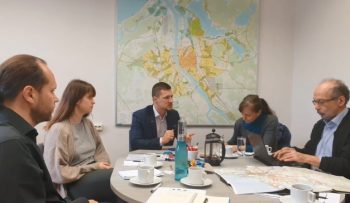The UPLIFT project, which was led by the Metropolitan Research Institute, has just finished in June 2023.
We are proud of our international team who did an exciting scientific work in the field of social inequalities among urban young people, and an excellent job in experimenting with a new policy making method, the so called Reflexive Policy Making process.
In the UPLIFT project, we have elaborated interesting research on a European scale, understanding inequalities. If you are interested in data on social inequalities focusing on youth, read the Atlas of inequalities and browse data in our interactive atlas.
In 16 European cities, based on extensive desk research and interviews with local experts and decision makers, we have analyzed the nature of economic processes and policies tackling social inequalities especially among young people in the field of education, employment and housing. The results are thoroughly described in 16 urban reports, which you can download here: https://uplift-youth.eu/local-reports/. A comprehensive study, that compares and concludes the main messages of the Urban Reports can be downloaded here: https://uplift-youth.b-cdn.net/wp-content/uploads/2023/02/D2.4_Synthesis_Report-of-the-16-urban-reports.pdf
In 8 European cities out of the 16, we focused our attention on understanding the mechanisms behind the decisions of vulnerable young people who are stuck in some way in a disadvantaged situation regarding their education, employment or housing. For this in each of the 8 locations we conducted 20 interviews with young people between the age of 15 and 29 and 20 interviews with people who were young and vulnerable during the Great Financial Crisis. The results are written in forms of 8 Case Study Reports. In addition to this we have elaborated 8 bilingual (in English and in local language) Policy Briefs, which contain the main recommendations for Reflexive Policy Making based on the research results of the Case Study Reports.
In 4 European cities: Amsterdam, Barakaldo, Sfantu Gheorghe and Tallinn our partners have experimented with a new policy making technique called Reflexive Policy Making, which in short meant to facilitate a collaborative work between the vulnerable young people in a form of a Youth Board and institutional stakeholders on a specific policy field, to come up with concrete recommendations for changing or creating local initiatives or policies. Their work is concluded with a thorough general guidance in a Guidebook and a Policy Brief
If you are interested in learning briefly about our work, watch this short and free video course and find your way to implement Reflexive Policy Making in your field.
If you are interested more about UPLIFT’s work please find our main outputs on our website: https://uplift-youth.eu/ and find us on social media channels: facebook, instagram, linkedin and twitter.

